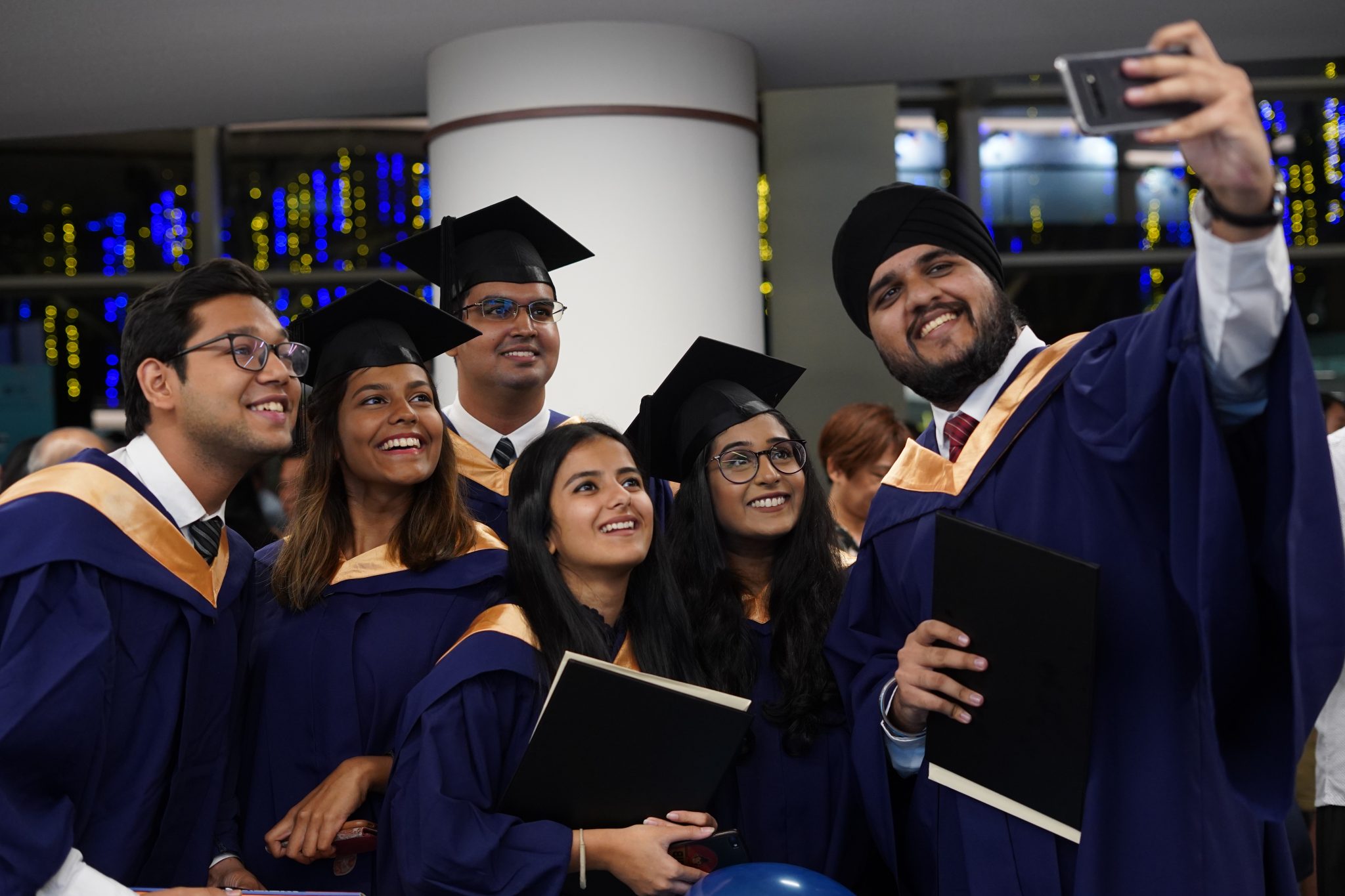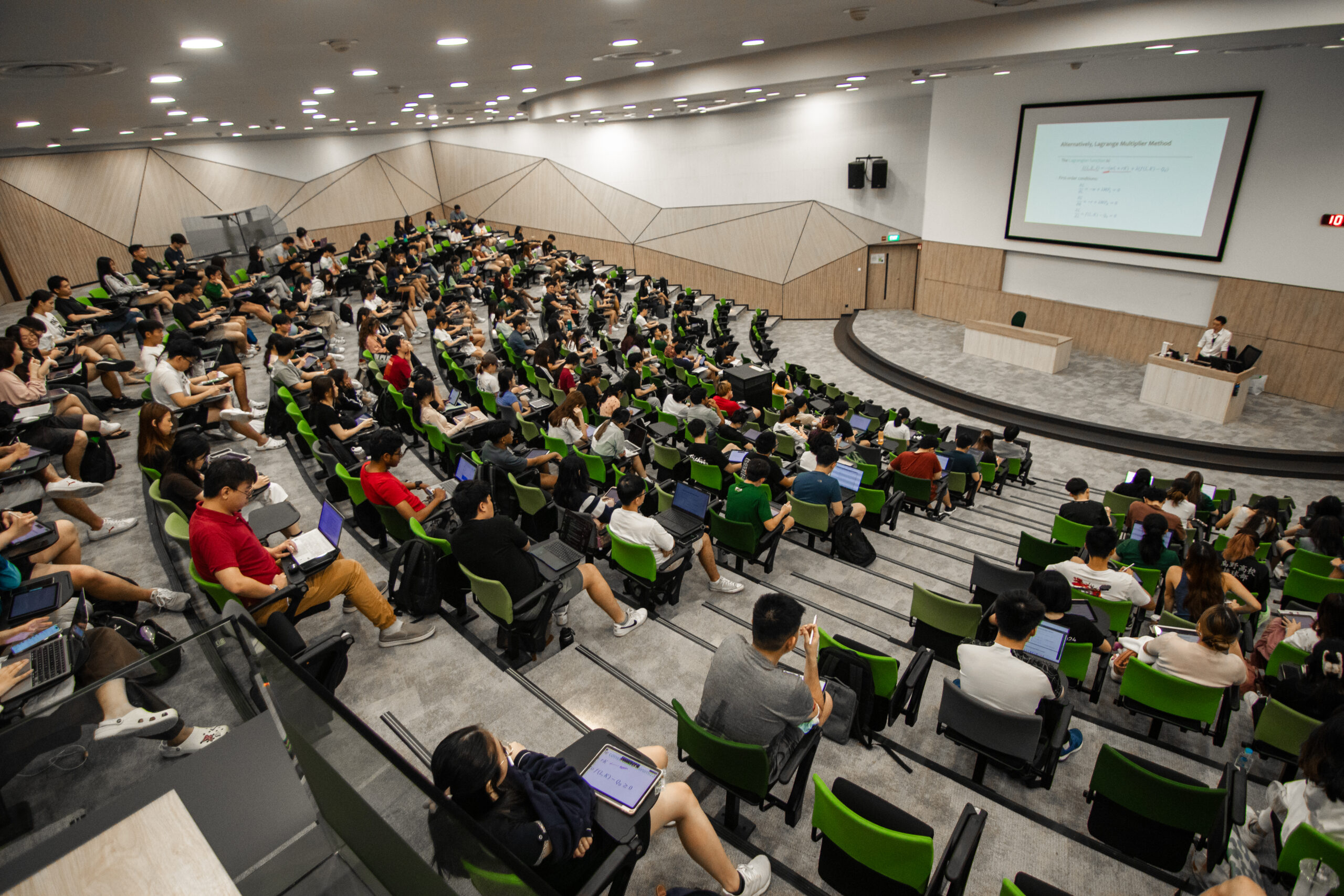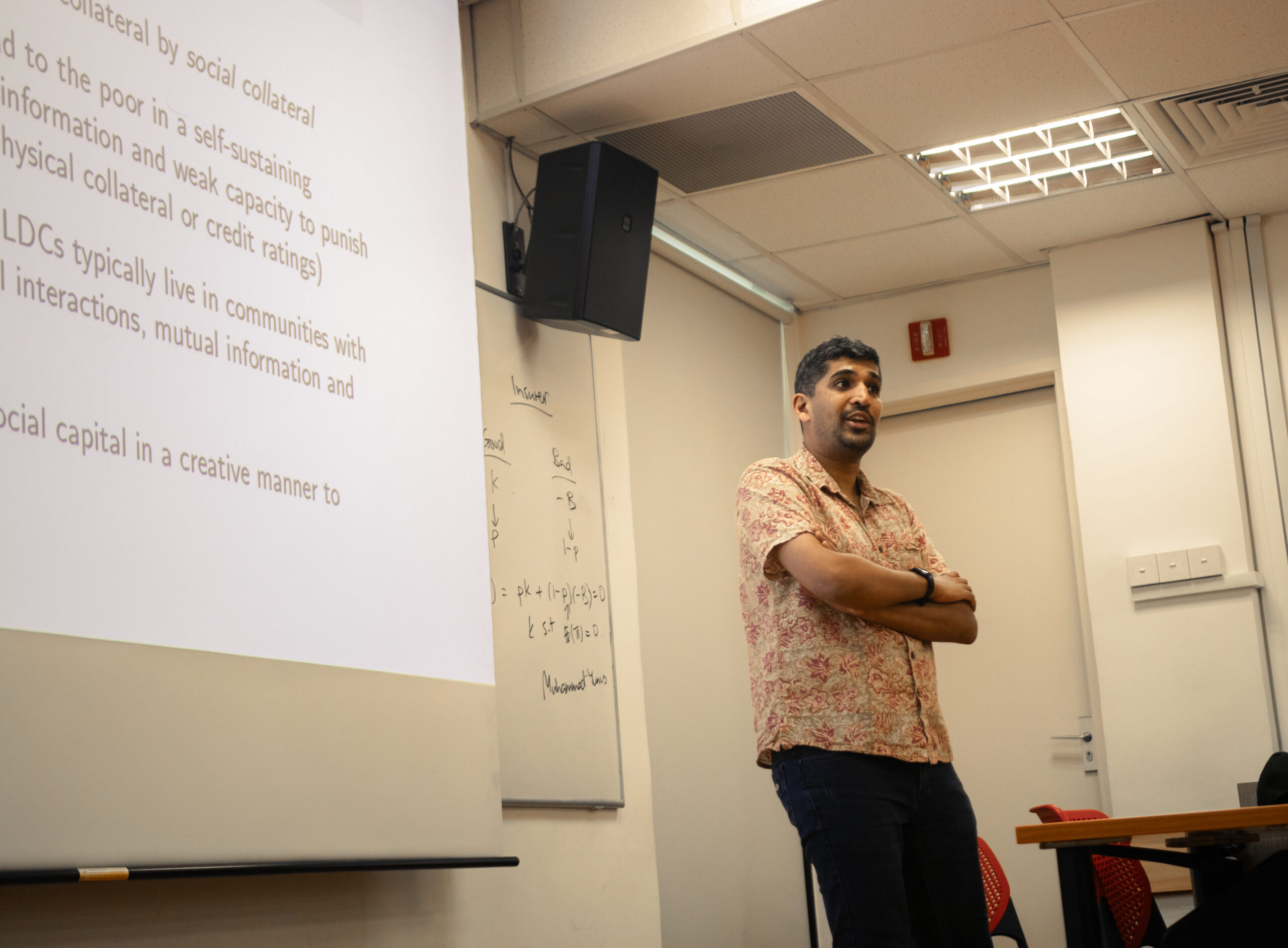Overview

Notable Alumni
NUS Economics is proud to count distinguished alumni among its graduates. Our alumni include Goh Chok Tong (Class of 1964), the second Prime Minister of Singapore, Lim Chong Yah (Class of 1955), a former chairman of the National Wage Council and Professor Emeritus at NUS, Ho Kwon Ping (Class of 1964), Executive Chairman of Banyan Tree Holdings, pastry chef and entrepreneur, Janice Wong (Class of 2006) and Ravi Menon (Class of 1987), former Managing Director of the Monetary Authority of Singapore. Watch Ravi Menon share his experiences as an undergraduate student in our department.
Why Economics?
While economics is often associated with financial markets, recessions, and inflation, the discipline is far more expansive. In economics, you will learn the theories behind how individuals and firms make optimal decisions. You will explore how markets function, understand their limitations, and discover the roles institutions can play in improving market outcomes and societal well-being.
Economics majors graduate with the ability to understand and analyse markets. They can help firms make more strategic decisions and provide governments with insights to shape policy. They are equipped to understand and address contemporary issues like cryptocurrency, climate change, income inequality, and the gig economy. Economics majors also learn statistical tools that enable them to extract key information from data and make forecasts.
What’s special about the NUS Economics Undergraduate Programme?
The NUS Economics Undergraduate Programme is well-rounded and rigorous. Our programme emphasizes analytical skills like critical thinking and data analysis. Also, students also have the opportunity to hone other skills including programming and oral and written communication. Here are five other strengths that our undergraduate programme has to offer:
An Interdisciplinary Education
Students receive an interdisciplinary education through the College of Humanities and Sciences common curriculum. Economics also features as a main component in two cross-disciplinary programmes:
In addition, students have the option to study economics as a primary major, a second major, a minor, or as part of one of the following double degree programmes:

Global Opportunities
Students can spend up to a year abroad as part of the student exchange programme. Students can choose from over 180 partner universities around the world.
Economics students can also major in Economics in special degree programmes with the University of North Carolina, Chapel Hill (USA) or with Sciences Po (France).
The university also provides a host of other international opportunities, including the NUS Overseas Colleges and programmes through the Global Relations Office.

Excellent Career Placement
Economics graduates are equipped with analytical skills and statistical proficiencies that make them well-suited to a wide range of roles and industries. In government, our graduates have been employed as economists, planners and policy managers in various ministries and statutory boards, such as the Ministry of Trade and Industry, the Monetary Authority of Singapore, Enterprise Singapore and the Central Provident Fund Board.
Our graduates have placed in the banking and finance sectors in roles such as management associates, risk analysts, investment analysts and financial analysts. They have also placed in technology firms in roles such as business development strategists, marketing managers, data analysts and data scientists. Our graduates are also employed in many other sectors, including consulting, education, health and retail.
Also, many of our graduates have pursued postgraduate studies locally and abroad, both in economics and in other fields such as business analytics, psychology, and public policy. Others have created their own path by becoming entrepreneurs. Whatever our students may choose to pursue after graduation, we see our role as the same: to encourage their intellectual development by exposing them to the analytical frameworks and insights of economics.

A wide variety of electives and specializations
Our diverse faculty offer courses on a wide variety of topics. In addition to offering courses in established fields like development economics, game theory and behavioral economics, we also offer courses in more niche fields like economic history, and on emerging topics like machine learning, digital platforms and inequality.
Click here to view our current course offerings.
Students can also choose to graduate with specialisations in:
- Quantitative Economics
- Monetary and Financial Economics
- Applied and Policy Economics

Research Opportunities
Students can engage in individual research with one-on-one faculty supervision by completing an Honours Thesis or Independent Study Course.
Many faculty also offer paid Research Assistantships which allow students to both work and gain experience in academic research.


